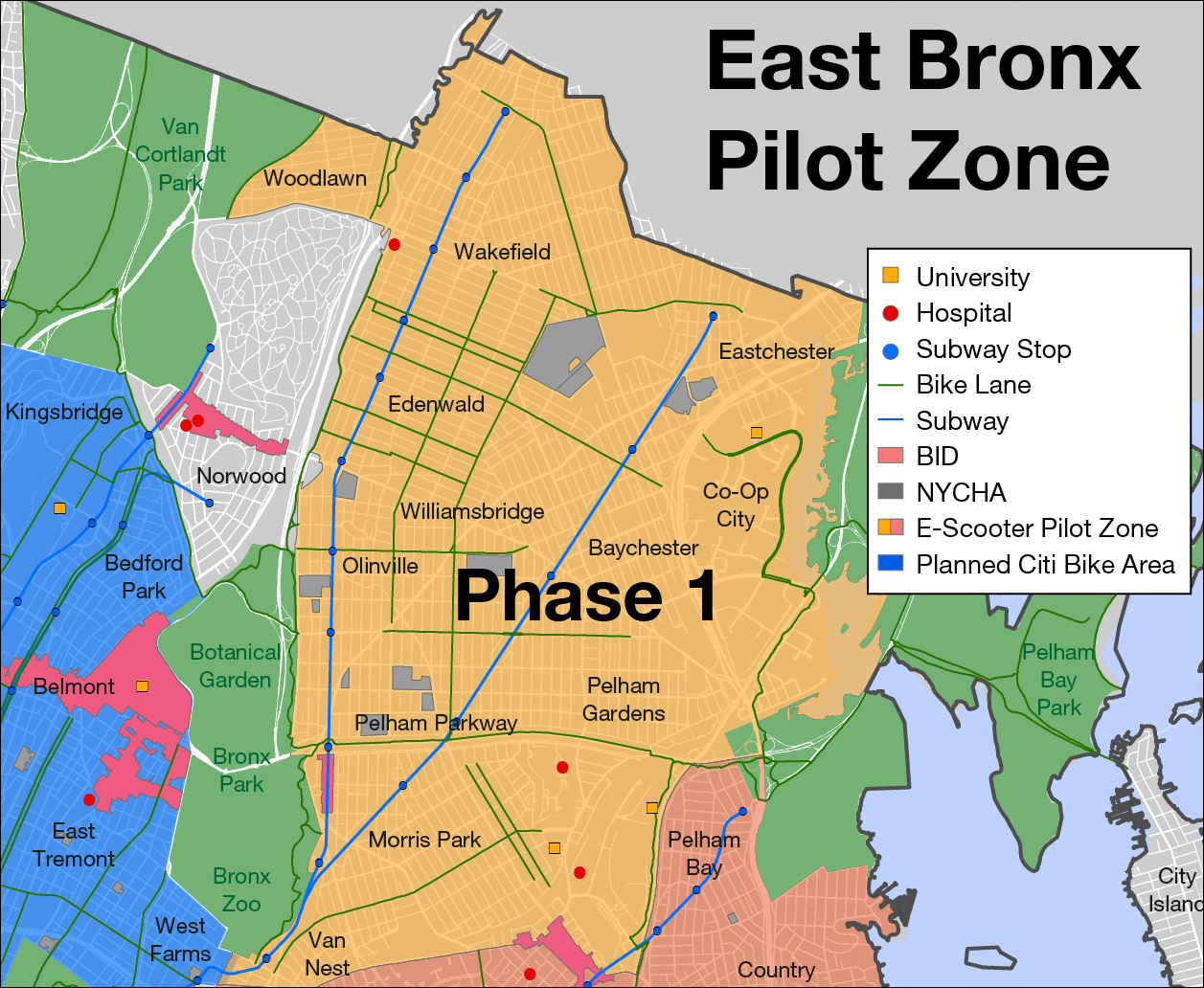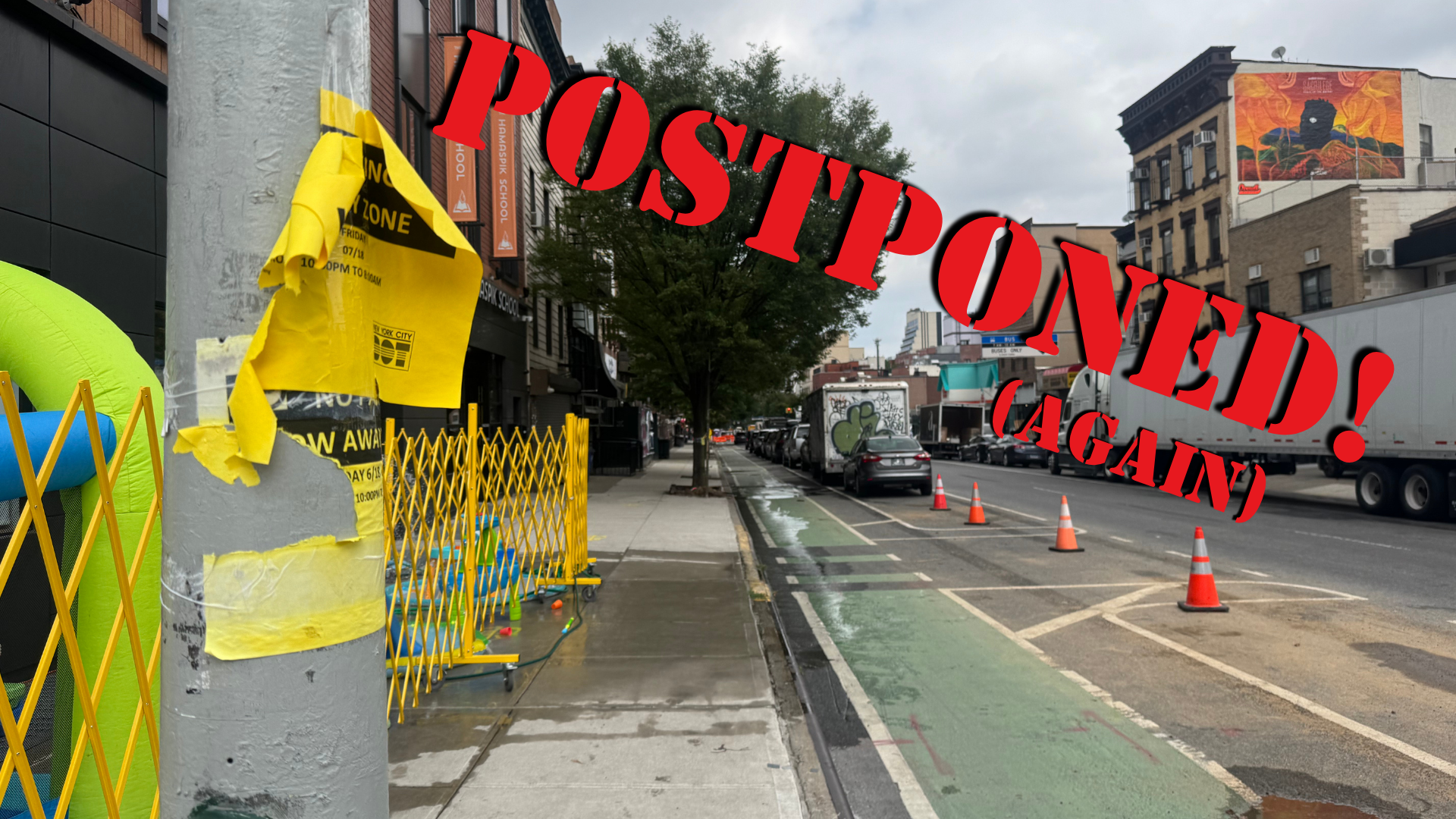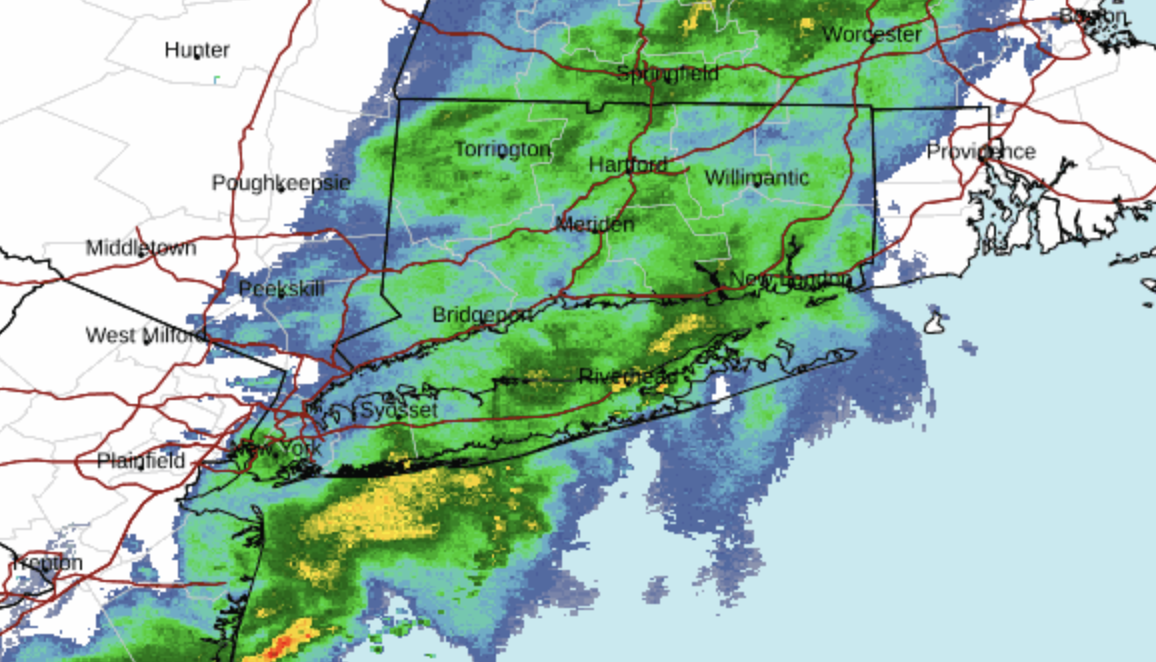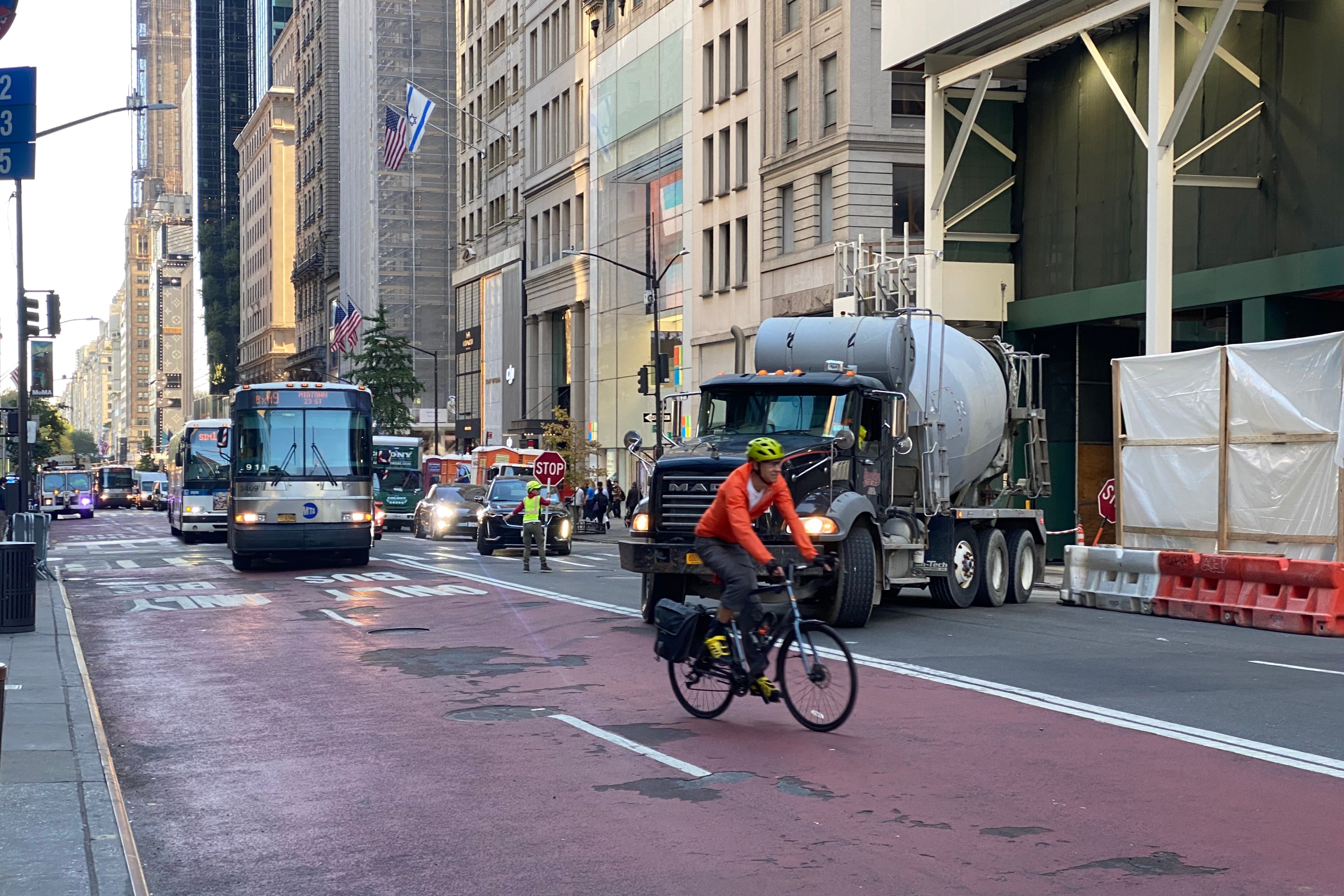Scooter down in the Boogie Down.
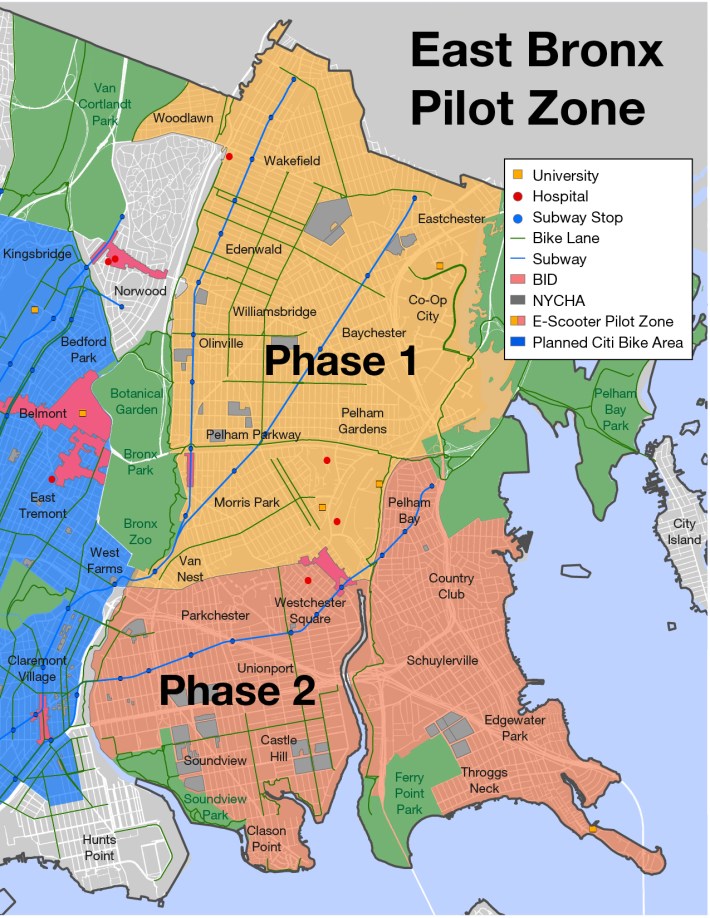
The Department of Transportation revealed today that The Bronx would be the site of the city's first scooter-share program — a Citi Bike for electric scooters, if you will — the result of a year-long effort to bring the revolutionary micro mobility mode to New York, which has lagged far behind other cities for scooter adoption.
The first zone of the two-phase program will be in the north Bronx, in an area basically border by Westchester (on the north, Pelham Bay Park (on the east), Parkchester (in the south) and the Botanic Garden and the Norwood section (on the west). (See map, right).
It is unclear what companies have "won" the bid; multiple companies, including Bird, Lime, Superpedestrian (with its Link scooters), Voi, Beryl and others, responded to a city request for expressions of interest on operating scooter-share programs, which are limited to the four boroughs beyond Manhattan.
The DOT statement did not name any of the companies that will participate in the scooter program — nor did it give any details about said program beyond the geographics — such as when the program will start and what it would even cost to rent a scooter.
"A forthcoming announcement will introduce the companies selected from amongst those who responded to the RFEI, along with details about equipment, accessible options, pricing, equity policies and discounts, features, and a launch schedule," the agency said in a vague statement. "DOT also plans to soon provide details of new bike lanes planned for the service area during 2021. Once announced, selected operators and DOT will conduct outreach to the communities within the pilot zone." (Like The Bronx zone itself, it's clear that DOT is treating its scooter-share rollout in two phases: first, identifying the zones and then naming the company or companies that will participate — indeed, some companies may drop out if they do not want to set up a Bronx program for some reason.)
What is known is that the Bronx zone meets some of what the DOT said it wanted in scooter share: The agency's goal was to support commuters who want to take transit, but are relatively long walks from stations. The phase 1 zone has multiple subway lines, but also significant subway deserts and exceptionally busy bus lines. If done correctly, for example, Co-op City residents could hop a scooter to get them to the Baychester Avenue 5 train station, and Williamsbridge residents could have an easier time getting to the 2 train.
And Zone 2 would add in greater access to the 6 train.
Neither zone is slated to get Citi Bike any time soon, so that likely provided an additional imputus for the DOT to choose this section of The Bronx (though City Council Member Antonio Reynoso, who was a driving force for the scooter-share RFEI, definitely wanted Brooklyn to be considered for the pilot. Similarly, some Council Members in Queens will likely also be disappointed).
"Ugh!" Reynoso said when contacted by Streetsblog just now, before adding, "I do believe we need to engage traditionally transit starved and neglected communities. Scooter share is lucky to be in the Bronx. I look forward to the expansion in the near future to come to Brooklyn."
Meanwhile, a resident of The Bronx told Streetsblog via Twitter that she's excited, albeit for a reason linked to the city's failure to expand bike share.
"I guess if they won’t give us Citi Bikes, [so] I’ll take scooters," said Megan Broderick.
The scooter company Voi indicated that it looks forward to participating in the program.
“In a city as dense and diverse as New York, starting in the Bronx and taking a phased approach to expansion is the right move," said the company's Chief Commercial Officer Carl Vernersson. "We hope to earn the opportunity to help make micromobility accessible to all New Yorkers.”
Other scooter share companies were initially keeping their powder dry as they awaited more information from the DOT.
"We're excited to see this program taking shape, and even more so about the prospect of serving Bronx residents with accessible, equitable and safe transportation options," Lime Senior Director for Government Relations Phil Jones said in a statement.
Superpedestrian tweeted that it is well situated to roll out a program in The Bronx:
Amen @NYC_DOT! This is transportation equity in action.
— Superpedestrian (@Superpedestrian) February 18, 2021
We've been on the ground meeting with Bronx leaders & communities, conducting safety demonstrations with our @LINK_Scooters, & know how much this borough will benefit from new accessible, sustainable transport options. 👏
Bird took the same tack.
"Bird applauds NYC DOT for announcing the East Bronx as the pilot area for Phase 1," the company said in a statement. "Having hosted a community event and met with leaders in the Bronx, we know that Bird can provide sustainable, equitable transportation and help transit deserts. As the only e-scooter operator in New York with a pilot nearby in Yonkers, we're confident we can contribute to the success of the New York City pilot."
One other detail was provided in a statement by new DOT Commissioner Hank Gutman, the former intellectual property lawyer and Democratic campaign donor appointed earlier this year by Mayor de Blasio to run the vital $1.3-billion agency. Gutman suggested that DOT will ensure that scooter riding is safe — something the agency has failed to do for cycling, as Streetsblog has repeatedly reported.
“DOT will require that scooter companies keep sidewalks and pedestrian ramps clear as well as closely track all crashes," said Gutman, promising, "new dedicated bike lanes to ease travel for e-scooters as well as bicycles in the east Bronx.”
New York is very late to the e-scooter party. Dozens of American cities — for better but sometimes for worse — have invited, allowed or sometimes simply been inundated with scooters for years.
New York's tardiness might help it avoid some of the problems in other cities, such as limited use of scooters by people of color (though other studies show widespread use across gender, class and racial demographics). And ridership soared during the COVID-19 pandemic.
Scooter share analysts have warned of injuries, but also said crashes show the need for protected infrastructure for e-scooter riders — something that cities haven't done (and, indeed, the NYC DOT did not announce today). A study in Portland, Ore. revealed that better bike lane infrastructure encourages more use of e-scooters (though cyclists don't love competing for limited space with vehicles that can go five to 10 miles per hour faster).
Streetsblog has reached out for more details and will update this story as we hear back.
